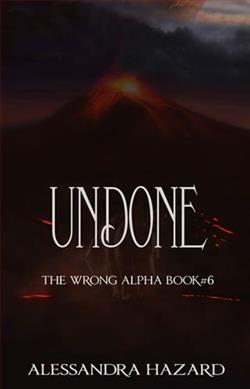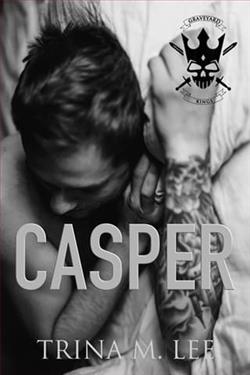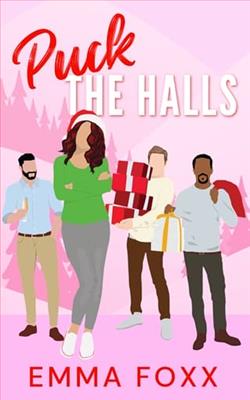Page 15 of Second Song
It’s a simple question, but before I know it, I get so many answers that Charles scratches a tally of votes into the sand, and I play a few bars of each, if I know it, or find a sample on my phone. Asking who can name each tune is a competitive business, and thank fuck I grew up helping Mum run sessions for little ones just like these. She made crowd control seem second nature. I do the same now by asking for raised hands instead of shouted answers, and I get them. I also play theme tune after theme tune from start to finish, and when that little boy croons about building a snowman, he also holds a card with lonely printed on it.
I’m far from lonely now I’m surrounded by children. Far from as panicked either. I can’t be when another panicked soul chooses a song for the final card, and the little boy who couldn’t face crossing this bridge whispers a song he thinks is joyful. “From Aladdin.”
I have no idea when I last played a song about a whole new world but here it is, soaring, tumbling, freewheeling from the very first instrument I learned to master, and his face lights up. He also shouts, “Daddy!”
I turn to see who watches from the same threshold where I first hovered, unsure if I belonged here.
The headmaster looks right at home, not stern at all when his son runs to greet him. And okay, he jumped off the bridge and ran across sand to do that, but Luke Lawson still swings him up onto his hip as if he’s a winner.
I’m not an emotion expert. I never have been, but my heart lurches when I see another musician is with him. This one carries a smart instrument case like the ones I left in my car. They also hold a sheaf of music, no doubt for the theory lesson I was meant to deliver to older students, and what have I done instead? I’ve played Disney hits on a whistle to little children in a sandpit. This candidate is professional while I still smell faintly of sheep shit, and I’ve?—
I’ve missed my chance.
The headmaster must say as much while backing away, but the same internal drums as earlier kick in, boom, boom, booming, so I don’t catch his parting comment.
Charles does. “Don’t look so worried. He just said he’d seen enough and he’d call you tomorrow, didn’t he?”
Who knows what my face does to make Charles flick a final card across the sandpit. I can’t let myself believe I’ll ever get the four letters printed on it.
“Take some hope home with you,” he tells me. “Maybe you’ll get to bring it back here with you in September.”
7
ROWAN
I don’t leave Glynn Harber for a few hours. I take a tour of the campus. It’s a touch ragged at its edges and a million miles from one of England’s top private schools that my stepdad eventually sent me away from.
The padre leads this tour, showing me a practice room that holds a piecemeal drum kit and not much else. “Up until now, our music instruction has come from visiting teachers.”
“Peripatetic.” I touch the tip of a drumstick to a well-used high hat. “That was my mother’s main gig. She taught kids from lots of different schools when I was younger. I always went with her.” I answer an unasked question. “Home-schooled.”
“Interesting. And when you were older?”
It’s a quiet question asked as he leafs through sheets of music. I don’t know why it’s so hard to say this. “She stopped moving around. Taught in one school full time.” I clear my throat. “Before that, we used to travel to music festivals all over Europe every summer. She ran drumming workshops for little ones.” I can still almost hear that thumping chaos. Can still almost see her across a campfire circle from me, embers glowing and hot chocolate steaming. “And she ran toddler sessions in places like village halls when we were back in England.” Those were the best fun. “She’d use anything to help them make noise.”
The padre opens a supply cupboard holding a tangle of mic cables and cobwebs. “Whoever takes on our music provision might need to be as creative. The school had a tough time for a few years. It’s turned a financial corner, but still needs investment.” He next points out of a window where thick woodland almost hides the housing for the boarding students. “That’s why the woods are a little out of control. Cash has been short, but now we have scope for extras like music and sport and nature.”
He leads me past busy classroom after busy classroom. There are also plenty of quiet corners. “For respite,” the padre tells me. “Many of our children need that more than anything else.”
He’s undemanding company, not seeming to mind my silence, although that’s what he brings up in a library he says only has empty shelves because of a renovation project. Children are busy in there too, packing away the last of their books with their teacher, who turns it into a counting and sorting lesson.
The padre finds a stray book and leafs through it like he did those sheets of music. “Children need a chance to process just as much as we do.” He taps the back of a green chair. “This colour means ‘you can talk to me.’ The red ones?” He points to a beanbag seat in a far corner where a blond-haired boy sits, glowering at a book with Lowly Worm on the cover. “Red means ‘give me a moment.’”
And that’s what he does for me as I find a vacant red seat, suddenly too wiped out to worry that the padre will see me needing a moment of my own as weakness. Maybe his attention is diverted by that blond boy leaving his red bean bag seat for a green one. “Feeling a bit better now, Tor? Ready to make friends again with Maisie if she’s back to school on Monday?”
It’s another patient moment in contrast to the school I left with an escape plan that crashed and burned along with me. This little boy crashes as well, only straight into angry tears in the arms of someone caring.
His voice hitches with so much feeling, and boy, that’s familiar. “I d-don’t want Maisie’s daddy to b-break our library!”
The padre consoles him before making a low-pitched suggestion. “Did you see the renovation plans, Tor? The ones pinned up by the front door? How about if I ask Maisie’s daddy to talk them through with you? Because yes, some of the library walls will come down, but he’s getting someone very kind to do it. Someone very, very clever, who knows how much we all love this space. He’s going to be so careful, and then your favourite part of the school will be bigger and even better. Because it is your favourite place, isn’t it?”
He digs in his pocket for a hanky. I still have one from his husband in my pocket. Now the padre uses his own to dab away a little boy’s tears.
“It’s where you came for a story whenever your daddy was on deployment, remember? We read a lot of books here when you missed him, didn’t we? Of course, it’s a special place, so how about we talk to Maisie’s daddy together?”
It’s a low-pressure suggestion instead of a demand for good behaviour, and it leads to a fierce hug that almost knocks the padre backwards.
“That needed to come out,” he tells me when his tour of the school continues and he leads me into those overgrown woods to a chapel.















